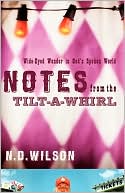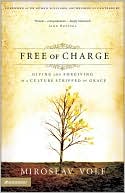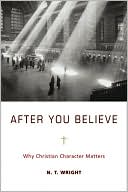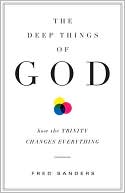Sociologists will tell you that if you want to get to know a society, learn their stories. I hope you can see why. Americans, for example, are by in large a patriotic bunch, and that is especially obvious when compared to, say, Canadians. It is a strange thing since our American heritage covers a very small period. We do not have the cultural roots or deep attachment to our land that other nations have. Nations like those in Europe or Asia, for instance, whose people have populated their land for millennia. So why aren’t Americans a bit more tempered in their patriotic zeal like our friends to the north? The answer is found in our national story. The story of our nation is one of revolution. Our American colonies were forced to “join or die.” Our heroes said things like, “I regret that I have but one life to loose for my country.” We are the first nation in which the people formed a government of their own choosing, and through choosing wisely have become one the most powerful in the world. This is our history, and this story is deeply imprinted consciously or unconsciously upon each individual. This story defines us and what we think about ourselves.
Stories get inside us. And the reason they get inside us is because we can get inside them. If I tell my little Lizzie that she should be kind, it won’t make much of an impact upon her. And it would do no good to pull out a dictionary and read the definition of “kind.” That is the trouble with definitions. They are useful but only in their proper place. You cannot put yourself inside of a definition. Lizzie, and all of us, need stories to tell us what “kind” really means. If I say to Lizzie, “You need to be kind like your brother when he shared his candy with you,” she can put herself into that story and know exactly what her course of action should be. As she hears the story, she puts herself into the story, and by doing that the story gets into her. You cannot get into definitions, and so definitions cannot get into you.
Now as we make choices each day, some mundane, some life-altering, what guides us? When we make a choice, without any effort whatever, without even consciously thinking about it, we are shaped by story. We are a certain character in a certain story. We know how that character should act. When we choose to act in accord with the story we feel right, justified, even proud of our choice. If we choose to act in discord with that story, we feel guilty and ashamed.
Life is most difficult when stories are in conflict. A man struggling in his relationship with his wife meets an attractive associate at work. She’s witty, adventurous, and drawn to him. He feels connected to her. Suddenly, two stories are in conflict. There is the story of marriage, and he knows how it should go. A life of devotion, love, romance, intimacy, and companionship, that is what the story should look like. Now there is another story, a story of lovers. What do you do when the story of marriage and the story of lovers become two separate stories? When choosing to pursue one story puts you at odds with the other story? The most difficult periods of our life occur when the stories in our heads do not mesh with the stories in our lives.
In C.S. Lewis’ autobiography Surprised by Joy, he speaks much of the horrible experiences he had at Wyvern, a boys’ school where he spent his teenage years. Lewis, however, lived through far worse things. Most notably, he was a British solider in the brutal trenches of World War I. And yet he says little of the war, and not because he wishes to avoid the subject as many battle-traumatized men do. At one point, Lewis even says “it was in a way unimportant.” He explains this seeming anomaly:
I am surprised that I did not dislike the army more. It was, of course, detestable. But the words “of course” drew the sting. That is where it differed from Wyvern. One did not expect to like it. Nobody said you ought to like it. Nobody pretended to like it. . . . And that made all the difference. Straight tribulation is easier to bear than tribulation which advertises itself as pleasure.
Stories that are supposed to be hard are easier to endure than stories that are supposed to pleasant but turn out to be hard. Marriage is supposed to be a pleasant story, but far too often it is not. A story of love turns into a story of pain and hurts all the more for it. In many ways, life in the opulent, comfort-laden land we call home is more trying than the struggles of our pioneering forefathers or those in the third world. I’m not throwing an American pity party, nor seeking to diminish the spilt blood and gnawing hunger of our human brothers and sisters in the East and South. But a hard life is easier to endure when you expect a hard life. When you expect green lawns, picket fences, 2.5 children and a relatively easy life, and get instead divorce, disappointment, loneliness, and an aching sense of your own meaninglessness, life becomes unendurable.
So if stories are so important to who we are and how we live, you can see how essential it is that we live by the right stories. I say “live” by the right stories and not “learn” the right stories, because we must learn the wrong stories as well as the right ones. Knowing a wrong story is good so long as you know it is a wrong story. Right stories say, “This is how it is,” and wrong stories say, “This is how it is NOT,” and that is very helpful. The danger then is not in knowing the wrong story, but in believing that a wrong story is a right story or that a right story is a wrong story. A story, for example, that tells you that the marriage story is easily forsaken for the lovers’ story, that the benefits of personal satisfaction, instantaneous pleasure, and freedom from the wearying strain of marriage gained in the lovers’ story far outweighs whatever trifling difficulties that may arise, is a very wrong and dangerous story. Whether you believe in the lovers’ stories presented by Soap Opera’s or HBO, or whether you believe in the lover’s stories of Anna Karenina or David and Bathsheba, will make all the difference in the world.
Therefore, we must ask what stories do we believe? Where are our stories coming from? What stories are our children being taught? These are important questions, and ones we must re-ask over and over again.








